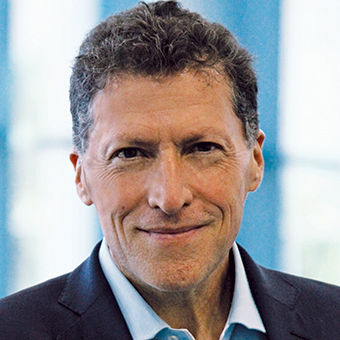
“And welcome to our frog-infested city,” added the Montreal bus driver after telling me which stop I should get off for Mount Royal Park.
Across the Atlantic, I watched, shocked, when a Londoner yelled, “Out of my way, Paki!” as he shoved a man aside so he could board a bus before him.
Although Mark Twain famously wrote that “travel is fatal to prejudice, bigotry and narrow-mindedness,” if you do hit the road, sooner or later you’ll be exposed to deep racial, ethnic, religious, political or lingual rifts.
Aziz Abu Sarah is using travel to narrow those chasms. It’s an unexpected ambition, given his personal history: When he was a boy living in Jerusalem, Israeli police came to his home and arrested his older brother on suspicion of throwing rocks at soldiers. When his brother was released a few days later, he had been beaten so badly that he died soon after of internal injuries.
Abu Sarah, who occasionally had encountered clouds of tear gas on his walk home from primary school, had already developed antipathy toward Jews. After his brother’s death, it hardened into a burning hatred. Although it was mandatory to learn Hebrew, he boycotted language classes in protest.
But to get a good job, he discovered, he needed the language. He enrolled in a class populated mostly with immigrants.
“I arrived resentful, my arms crossed tight,” he said. But to his surprise, his teacher welcomed him in Arabic.
It was his first human-to-human contact with a Jewish Israeli, and it ran contrary to all he had come to expect. “She didn’t just teach Hebrew, she taught us how to communicate,” he said. “She asked me to bring an Arabic song, and the class translated it together. Then she asked me to teach the class how to dance to the music. In three-and-a-half months, she taught us how to be friends.”
When he entered the class, he said, “I was pretty radical. But I learned you can transform people through love, by being kind to them, by listening to them.”
He became interested in conflict resolution, eventually ending up as co-executive director at the Center for World Religions, Diplomacy and Conflict Resolution at George Mason University. The other co-executive director, Scott Cooper, is an American Jew. Eventually, they came to see travel as a means to understand the roots of hatred and how to move past them. They co-founded Mejdi Tours.
Their approach is to bring travelers into areas where there are internal divisions — not a particularly small canvas to work upon — and introduce visitors to resident partisans (or former partisans).
The method seems to work. Emily Schneider, an assistant professor at Northern Arizona State University, found that 93% of Mejdi’s guests say that after taking one of their tours, they have more empathy for the group they had previously had less empathy for.
Mejdi Tours now operates in Israel and Palestine, Northern Ireland, Colombia, Egypt, Morocco, Jordan, Lebanon, Slovakia, Poland and Hungary, among other destinations. It has partnered with National Geographic and Intrepid Travel and works directly with travel advisors on both FITs and escorted tours.
I met Abu Sarah after he presented at GLEX, the Explorers Club global conference, on the Azores island of Terceira. (Abu Sarah is also a TED fellow and National Geographic Explorer). Over lunch, I asked him to describe a typical tour to Israel and Palestine.
“We’d start in Jerusalem, at the Al-Aqsa Mosque and meet the imam and tour Temple Mount, then have lunch with a rabbi and visit the Western Wall. We’ll also visit Via Dolorosa, the Church of the Holy Sepulchre and meet with Christian families.
“The next day we would get a tour of City of David, a settlement on the West Bank, then visit a village that has been impacted by the presence of the settlements.”
The rest of the week might include a visit to Yad Vashem, the Holocaust remembrance center; a meeting with an Israeli soldier; a visit to a Druze village; a stop in Nazareth (and later, Bethlehem) to meet Christian leaders; Safed, to hear about Jewish mysticism; engaging with Ethiopian Jews and other asylum seekers; and touring the Bahai Temple in Haifa.
Subsequently, a visit to Ramallah might include a stop at Yasser Arafat’s tomb; a food tour with a Palestinian chef; and meeting with politicians and political activists.
Not everything is connected to conflict; a tour could include a visit to a kibbutz, a winery, a local market and a meeting with Israeli high-tech executives. But other visits are with people struggling to bridge the pain caused by conflict: a bereaved family circle that includes Israelis and Palestinians, a joint Israeli/Palestinian theater group or organizations of Jews and Palestinians working for peace.
This, by the way, is just a partial inventory of the options Abu Sarah shared with me.
Next up: He’s working on a Democrat/Republican tour of Washington.
Source: Read Full Article










